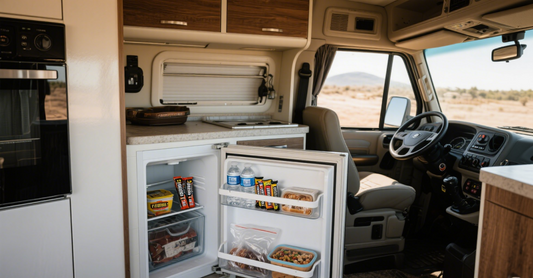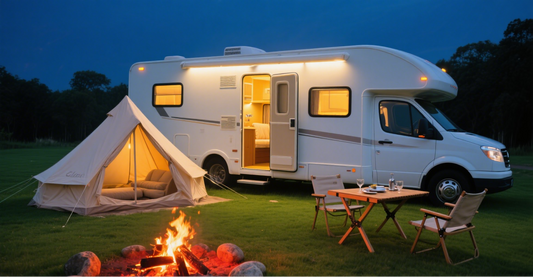How to Choose the Best Golf Cart Battery for Your Club Car
Selecting the right battery for a Club Car golf cart involves evaluating factors that align with your usage needs and the cart's specifications. Club Car models, such as the Precedent or Onward, typically run on 36V or 48V systems.
This guide will explore in detail how, by considering voltage compatibility, capacity requirements and long-term value, you can find a battery that can support reliable operation on the golf course, community driving or public utility.


The Importance of Club Car Golf Cart Batteries in Performance
The battery acts as the core component in an electric golf cart, supplying power to the motor, controller, and accessories while determining how the golf cart operates under different conditions.
For Club Car carts, a suitable battery maintains steady voltage to handle inclines or extended distances without sudden drops in speed.
Choosing an incompatible or low-quality battery can lead to issues like shortened range or component strain, increasing repair needs over time.
In contrast, a well-matched battery, such as lithium-ion, facilitates smoother control and fewer interruptions, allowing you to focus on your activity.
Therefore, this selection process also influences energy efficiency, with modern options reducing the frequency of replacements and supporting varied environments.
Understanding Types of Club Car Golf Cart Batteries
Club Car golf cart batteries fall into two main categories: lead-acid and lithium-ion, each with specific traits that influence their fit for different cart models and user scenarios.
Lead-acid batteries
Include flooded, AGM (absorbed glass mat), and gel types, which have served as a standard choice due to their established availability.
These batteries rely on lead plates and electrolyte to generate power, offering initial affordability but requiring attention to details like electrolyte levels to avoid degradation.
AGM batteries offer better vibration resistance, making them suitable for rough terrain. In Club Car applications, they provide basic functionality, though their performance may vary with temperature fluctuations.
Lithium-ion batteries
Often based on LiFePO4 chemistry, deliver consistent energy without the gradual fade common in lead-acid options.
They integrate well into club car systems as a lead-acid replacement, sometimes needing charger adaptations for best results.
This type of battery is suitable for golf cart owners looking for longer cycle times and a steady charge output.
The following table summarizes the differences in depth of discharge, starting current, and temperature tolerance between battery chemistries, helping to compare how each battery performs under power demands and environmental conditions.
| Battery Chemistry | Discharge Depth | Cold Cranking Amps (CCA) | Operating Temperature Range |
|---|---|---|---|
| Lead-Acid (Flooded) | 50% | 200-400 | 0°F to 120°F |
| AGM | 80% | 300-500 | -20°F to 140°F |
| LiFePO4 | 100% | 500-800 | -4°F to 149°F |
Benefits of Upgrading to Lithium Batteries for Club Car Carts
Upgrading to lithium batteries in a Club Car golf cart can address limitations of traditional lead-acid batteries by improving several operational aspects.
- Lithium batteries weigh less, often by half, which aids in better cart balance and reduced wear on components during movement.
- Their charging process completes faster, typically within a few hours, compared to longer durations for lead-acid, enabling more frequent use without extended waits.
- With minimal maintenance needs, they eliminate tasks like checking proper water levels, freeing up time for golf cart owners.
- Over the long run, lithium batteries contribute to cost effectiveness through fewer replacements, as their cycle life extends beyond that of lead-acid options.


For Club Car users, this upgrade supports enhanced performance on courses or paths, with stable power delivery even as the charge level decreases.
The table below quantifies impacts on daily use and efficiency gains from upgrading, providing a visual summary to evaluate potential improvements in handling, recharges, and range.
| Upgrade Aspect | Impact on Daily Use | Estimated Efficiency Gain |
|---|---|---|
| Weight Reduction | Easier handling | Up to 30% better agility |
| Charge Cycles | Less frequent recharges | 3–5 times more cycles |
| Energy Retention | Consistent speed | 20–40% longer range |
Key Factors in Selecting Club Car Golf Cart Batteries
Several factors guide the selection of batteries for your Club Car, ensuring they meet the cart model's requirements and your specific applications. When evaluating batteries for Club Car carts, consider usage patterns like daily mileage, terrain, and operational frequency.
Voltage and Compatibility
Capacity, measured in amp-hours, determines runtime, lower ratings like 100Ah work for shorter trips, while higher ones extend usability on demanding terrains.
Voltage compatibility is the primary consideration, Club Cars typically use a 36V or 48V voltage setting, a voltage mismatch may damage the electrical system, so please refer to your golf cart manual to confirm.
Lifespan, Weight, and Size
Lifespan and weight also play an important role in practicality, as lithium batteries can provide more cycles while reducing weight, and can be installed with only minor modifications to the standard battery compartment dimensions of most Club Car models (e.g., L530×W240×H300mm).
Battery Management System (BMS) and Features
A powerful BMS prevents overcharging and overheating and is usually equipped with Bluetooth monitoring. Features such as low temperature protection enhance the battery's versatility. Lithium batteries like the Temgo 36V or 48V also come with an external display to help you monitor the battery status in real time.
Cost Budget
Cost considerations include initial investment versus ongoing savings, with lithium batteries starting at $800 to $1,500 each, but the long-term savings make the investment worthwhile. Some lithium batteries (Temgo battery brands) often offer value through certification and warranties.
For example, a lithium battery with an initial cost of $1,200 could save $2,000 over five years because it needs to be replaced less frequently than a lead-acid battery.
Top Recommendations for Lithium Golf Cart Batteries in Club Car Models
Based on 2025 market data and user experiences, certain lithium batteries align well with Club Car carts, offering features that address common needs like range and durability.
Based on 2025 reviews, these batteries are compatible with Club Car models like Onward, providing drop-in installation for straightforward upgrades. While various brands meet performance standards, Temgo Battery models are highlighted here for their integration of high-discharge capabilities and monitoring features. For example:
- Temgo 36V lithium golf cart batteryprovides 200A continuous discharge and a 600A peak for 3 seconds, supporting strong performance on uneven surfaces, with over 5,000 deep cycles at 80% depth. It includes a 42.6V 20A charger for 5-6 hour full charges and a 200A smart BMS with Bluetooth for monitoring via the Temgo app, plus low-temperature safeguards. The IP65 ABS shell weighs 61.73 pounds, aiding installation.
- Temgo 48V battery version offers 5.12 kWh storage for 40-50 miles per charge, with 200A continuous and 300A peak discharge for 30 seconds, suitable for steeper paths. It features a 56.8V 18A charger, IP67 SPCC metal shell for environmental resistance, and a 2.8-inch LCD touchscreen for real-time data, at 99.2 pounds.
The following table compares key specifications across Temgo models and select alternatives, illustrating variations in discharge, storage, and weight to aid in evaluating options for specific Club Car needs.
| Brand/Model | Discharge Capabilities | Storage and Display Features | Weight (lbs) |
|---|---|---|---|
| Tengo 36V 100Ah Lithium | 200A Continuous/600A Peak | Bluetooth BMS, Low-Temp Protection | 61.73 |
| Tengo 48V 100Ah Lithium | 200A Continuous/300A Peak | LCD Touchscreen, IP67 Shell | 99.2 |
| Eco Battery 48V 105Ah | 150A Continuous | Bluetooth App Integration | 45 |
| Bolt Energy 48V 105Ah | 180A Continuous | Overcharge Protection | 50 |
| RoyPow 48V 100Ah | 200A Continuous | Eco-Mode Settings | 55 |
| Allied Lithium 48V 105Ah | 180A Continuous | Drop-In Compatibility | 48 |
| Dakota Lithium 48V 100Ah | 200A Continuous | Extreme Temperature Resilience | 52 |
| Vatrer 48V 105Ah | 150A Continuous | Hill-Optimized BMS | 50 |
| Trojan Lithium 48V 100Ah | 160A Continuous | Long Warranty Support | 55 |
Maintenance and Installation Tips for Club Car Golf Cart Batteries
Proper maintenance extends the service life of batteries in your cart, while installation practices ensure safe integration.
- For lead-acid batteries, regularly check terminals for buildup and clean with baking soda and water to prevent corrosion, alongside monitoring electrolyte levels monthly. Lithium batteries require less intervention, focusing on periodic charging to avoid full depletion and storage in controlled conditions.
- During installation, position batteries in ventilated areas, secure connections, and confirm fit within the cart's tray using spacers if dimensions vary slightly. Avoid exposure to extreme temperatures, as this can impact performance. For lithium types, leverage BMS alerts for proactive adjustments.
You can also read: How To Install a 36V or 48V Lithium Battery In Your Golf Cart
The table below details maintenance schedules and type-specific tasks, offering a checklist to track inspections and cleanings systematically.
| Maintenance Schedule | Lead-acid Specifics | Lithium Specifics |
|---|---|---|
| Weekly Inspection | Visual Check Leaks | Charge Status Review |
| Quarterly Deep Clean | Acid Neutralization | Connector Tightening |
Conclusion
Choosing the best lithium battery for your Club Car golf cart requires balancing factors such as battery type, capacity, and maintenance to achieve reliable results. Lithium-ion batteries frequently meet these needs through their extended cycles and efficient operation, supporting a range of activities with minimal downtime.
If you are ready to buy, Temgo batteries are a practical choice, we specialize in lithium battery solutions with features such as smart BMS and fast charging, and provide warranty and technical support from local warehouses. Models such as our 48V 100Ah are perfectly compatible with Club Car golf carts, making it easy for you to upgrade. Visit the Temgo Shop to learn about these batteries and determine if they are suitable for your equipment.


